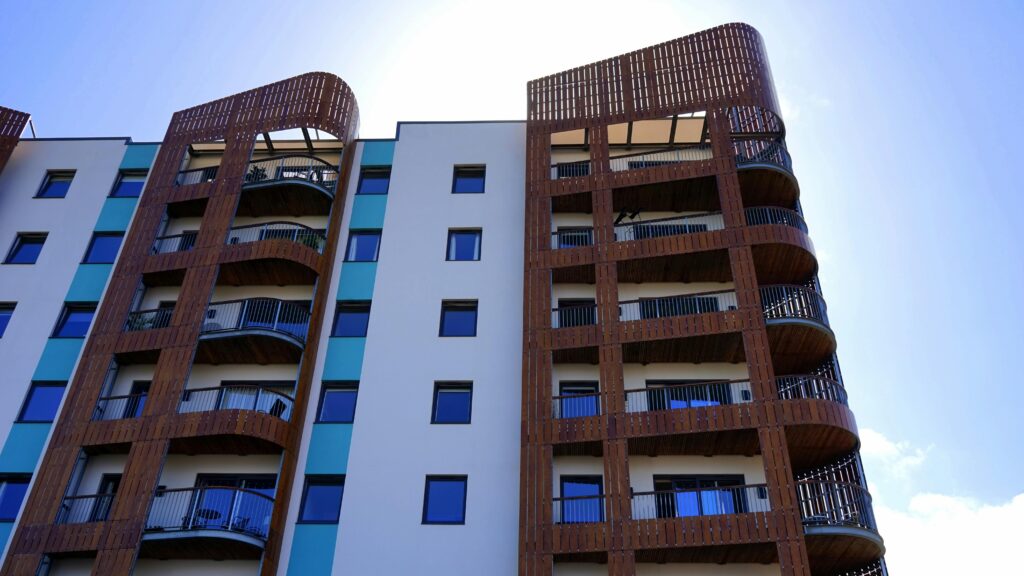By Taylor Kay, Senior Director, Work and Travel Program at Greenheart.
“Finding housing is a challenge.” – Everyone
This sentence is an understatement and applies to all sorts of contexts in the U.S. Whether you’re local or moving across the country, American or coming from abroad, housing is harder to find each year. It is growing more expensive. For the Work and Travel program, the rise of Airbnb and VRBO led to decreases in seasonal housing. Furthermore, the pandemic shocked the supply. In some places, new housing construction hasn’t kept pace with population growth. And sometimes natural disasters have distorted supply and demand. Regardless, sourcing affordable and accessible housing is taking up more time and resources for host employers and participants. The U.S. Department of State has identified this issue as a threat to the program. Participants find themselves in housing that is far from their workplace, lacking basic amenities and/or very expensive. There is also the risk of getting scammed when signing a housing agreement or sending a sizable housing deposit prior to traveling to the United States.
The Department of State’s Housing Directive
In December 2024, the Department of State issued a guidance directive to Summer Work Travel sponsors. The guidance directs sponsors to “consider the availability of suitable, affordable housing (that meets local codes and ordinances), when making job placements. It also recommends that sponsors should increase their efforts to vet housing prior to participant arrival including having direct contact with the housing provider (i.e. landlord) and reviewing lease terms. This blog post will outline how Greenheart Exchange is tackling this ahead of the arrival of our summer participants.

Greenheart Exchanges housing standards
First, let me lay out Greenheart Exchanges housing standards are, which are guided by Department State regulations:
- Housing must follow all local, state and federal housing, building and fire safety codes and be at least partially furnished.
- Each participant must have their own bed defined as a mattress on a bed frame or box spring. Air mattresses do not count.
- Participants must have a designated bedroom. Each bedroom should have no more than six occupants.
- There should be no more than six occupants per bathroom.
- Housing should be no more than 20 miles from the worksite. Reliable transportation options must be taken into account. Two miles is an acceptable walking distance; five miles by bicycle.
- A housing agreement/lease provides protections to both participants and housing providers and written rules about conduct and costs.
Understanding Housing Guidelines
Our initial effort was to educate ourselves and our host employers. We helped set up a working group among BridgeUSA sponsors to help develop a common understanding of the directive. They share ideas and best practices when it comes to vetting housing. We arranged a webinar with Lanyard – a company skilled in working with employers to find seasonal housing in all sorts of situations. Some host employers engaged Lanyard’s services for this summer. This reduced the burden on participants and made these placements more secure and attractive. Further, we developed a two-page housing guide for participants. We also learned more about lease agreements, and how our participants usually found housing on their own.

Setting up a Data Collection Form for Best Results
We set up a data collection form which our international representatives filled out. This form provides us contact information and basic details for housing providers. As directed by the Department of State, we have been doing background checks and talking to each and every prospective housing provider. We’ve talked to Airbnb hosts, hostels and extended stays, universities, family members of participants and friends of family members. So far, we have rejected about 10% of submissions as not meeting our standards and discovered one scam. This taught us to tighten up our background check process. We thought some would not want anything to do with us, but upon explaining the purpose of this program, nearly everyone has been cooperative. I personally have talked with many Jamaican and Dominican-heritage residents in New York City intending to house a distant relative or family friend joining our Work and Travel program.
It’s labor intensive. This started out as a full-time job and as of this writing is now a two-person full-time job. However, the bubble of address submissions will be passing by mid-June. We intend to use our findings at the end of the season to hone our process. We will evaluate what types of arrangements were problematic. We will also find out whether we should reconsider job placements in those areas in future seasons.
The Department of State has said this is the summer of accountability for stakeholders in the Summer Work Travel program. Stakeholders should run safe and effective programs.
Are you a U.S.-based business and would like to host international seasonal staff for a cultural exchange? Please visit HirewithGreenheart.org to learn more.
